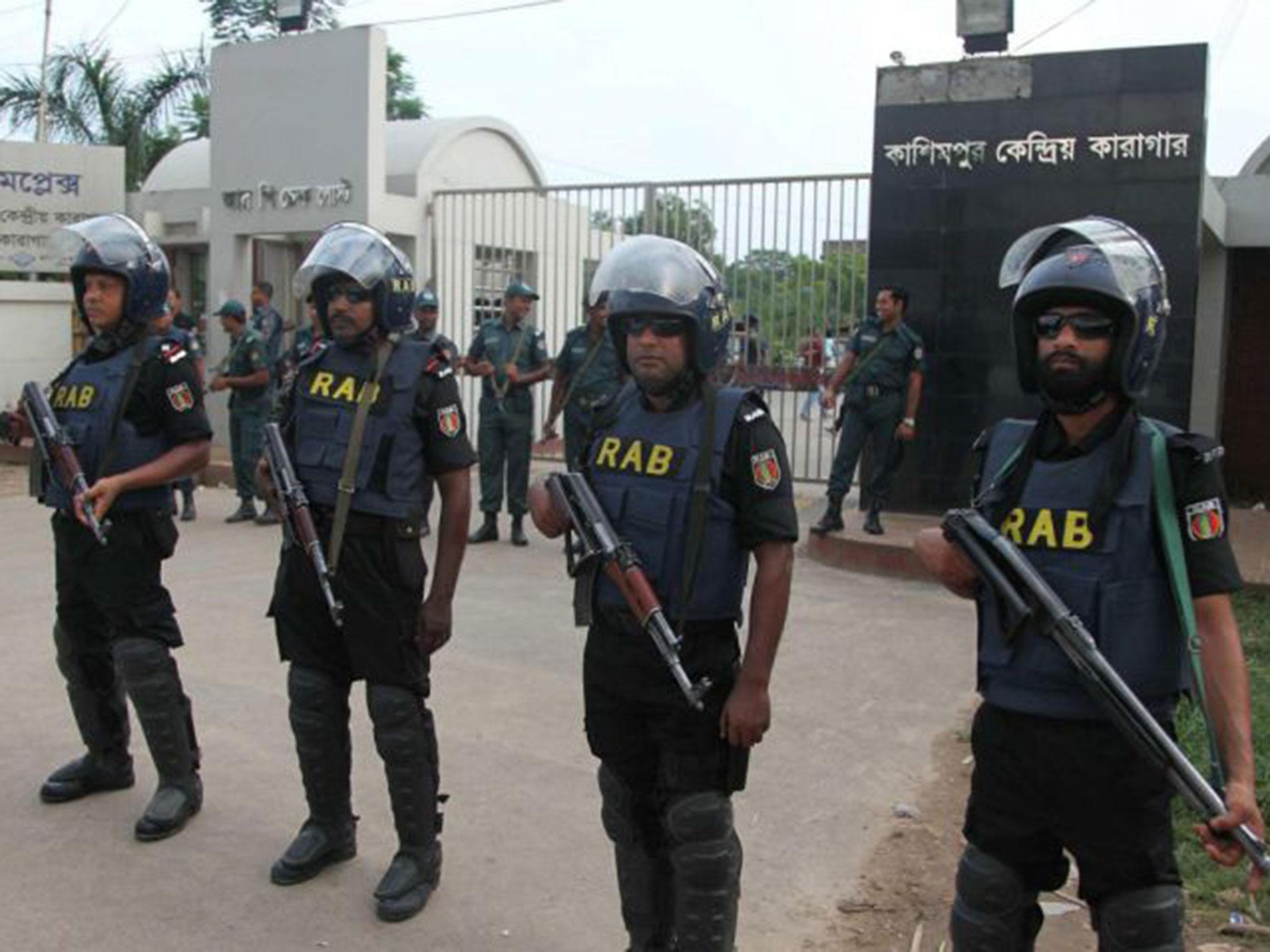Senior Islamist leader executed in Bangladesh for war crimes committed during conflict with Pakistan
Mir Quasem Ali's party, Jamaat-e-Islami, have vowed a general strike

Your support helps us to tell the story
From reproductive rights to climate change to Big Tech, The Independent is on the ground when the story is developing. Whether it's investigating the financials of Elon Musk's pro-Trump PAC or producing our latest documentary, 'The A Word', which shines a light on the American women fighting for reproductive rights, we know how important it is to parse out the facts from the messaging.
At such a critical moment in US history, we need reporters on the ground. Your donation allows us to keep sending journalists to speak to both sides of the story.
The Independent is trusted by Americans across the entire political spectrum. And unlike many other quality news outlets, we choose not to lock Americans out of our reporting and analysis with paywalls. We believe quality journalism should be available to everyone, paid for by those who can afford it.
Your support makes all the difference.Bangladesh authorities on Saturday executed a top Islamist party leader convicted of war crimes involving the nation's 1971 independence war against Pakistan, officials said.
Proshanto Kumar Bonik, a senior jail superintendent, said Mir Quasem Ali, a leader of the Jamaat-e-Islami party, was hanged at 10:30 pm local time, hours after several dozen family members and relatives met him for the last time inside Kashimpur Central Jail near the capital, Dhaka.
"We are doing our necessary formalities now. We will send the body soon to the ancestral home in Manikganj district for burial," Bonik said after the execution.
Immediately after the execution, Home Minister Asaduzzaman Khan said security measures would be put in place to prevent unrest by Ali's supporters.
Authorities deployed para-military border guards and additional police in Dhaka and other cities late Saturday.
The Jamaat-e-Islami party in a statement late Saturday protested Ali's execution and called for an eight-hour general strike beginning Monday morning.
The execution took place a day after Ali refused to seek presidential clemency. It was his last chance to see mercy. The president had previously rejected appeals for clemency by other Islamist party leaders facing execution.
On Tuesday, the Supreme Court rejected a final appeal for reviewing Ali's death sentence handed out by a special tribunal two years ago.
After the Supreme Court ruling, the Jamaat-e-Islami party called for a daylong general strike across the country last Wednesday, but got little response.
A special tribunal dealing with war crimes sentenced Ali to death in November 2014 for abduction, torture and murder.
The 63-year-old Ali was a member of Jamaat-e-Islami's highest policy-making body. He was found guilty on eight charges, two of which carried the death sentence, including the abduction and murder of a young man in a torture chamber. Ali was sentenced to 72 years in prison on the other charges.
Ali built his fortune by establishing businesses from real estate to shipping to banking, and he was considered one of the party's top financiers.
Ali is the fifth Jamaat-e-Islami party leader to be executed since 2010 when Prime Minister Sheikh Hasina formed the special tribunal to try suspected war criminals. Also executed was a close aide of former Prime Minister Khaleda Zia from the main opposition Bangladesh Nationalist Party. Jamaat-e-Islami is a key partner of Zia's Bangladesh Nationalist Party in the opposition against Hasina.
Hasina's government says Pakistani soldiers, aided by local collaborators, killed 3 million people and raped 200,000 women in the 1971 independence war.
Jamaat-e-Islami, which had openly campaigned against independence, has denied committing atrocities.
Hasina has called the special tribunal trials a long overdue effort to obtain justice for the victims of war crimes, four decades after Bangladesh split from Pakistan. Her government has rejected criticism from abroad that the trial process did not meet international standards.
The international human rights group Amnesty International noted that the United Nations had raised questions about the fairness of the trials of Ali and other Islamist party leaders.
"There is no question that the people of Bangladesh deserve justice for crimes committed during the War of Independence, but the death penalty is a human rights violation and will not achieve this. It is a cruel and irreversible punishment that most of the world's countries have now rid themselves of," said Champa Patel, Amnesty International's South Asia Director, in a statement released Saturday.
AP
Join our commenting forum
Join thought-provoking conversations, follow other Independent readers and see their replies
Comments